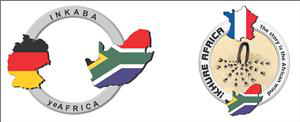Speaker
Ms
Moipone Precious Mokoena
(AEON - NMMU)
Description
The potential for shale gas extraction in the South African Karoo has been one of the most controversial issues because of the unknown extent of socio-economic and environmental impacts. Although we can learn about the pros and cons of shale gas development from the US and other countries, South Africa’s unique geology and semi-arid climate makes the extraction of gas more complex. South African geohydrological challenges include limited water resources, gaps in geohydrological research, potential release of the thermogenic gas into the shallow aquifers and dolerite intrusions associated with high yielding wells that create preferential pathways for water between solid dolerite and adjacent Karoo sediments.
The aim of this research is to establish a geochemical baseline data of groundwater resources in the South African Eastern Cape Karoo by primarily focusing on methane gas emissions (with emphasis on previously deep Soekor boreholes), the origin of methane gas and the analysis of current water quality. Stray-gas discharge via connected fractures into shallow formation waters or to the surface can result in contamination of domestic groundwater and air.
Isotope characterization of 13C/12C, 18O\16O and 2H\1H ratios analysed by the Picarro cavity ring-down spectrometer and Gas Chromatograph-ICP-MS will be used as environmental tracers to fingerprint the origin of methane and also evaluate whether gases originating at deeper horizons will have impact on shallow aquifers. Compilation of historic and current water quality results will be used to compare and construct a database of groundwater quality, characterise the groundwater type and status. Along with laboratory experiments, computational (chemical-mass-transport models) studies will be conducted to further reach the objectives of the research.
The geochemical database from this research will serve as benchmark against which future groundwater qualities can be evaluated to identify contaminant impacts that might originate from deep wells. The understanding gained during the research is likely to be valuable to farmers, communities and government institutions affected by deep drilling, hydraulic fracturing (fracking) and other processes related to the shale gas development.
Keyword: Isotopes, Methane, Natural gas, Karoo water quality, Fracking, Hydraulic Fracturing
Primary author
Ms
Moipone Precious Mokoena
(AEON - NMMU)
Co-author
Prof.
Maarten de Wit
(NMMU AEON)

